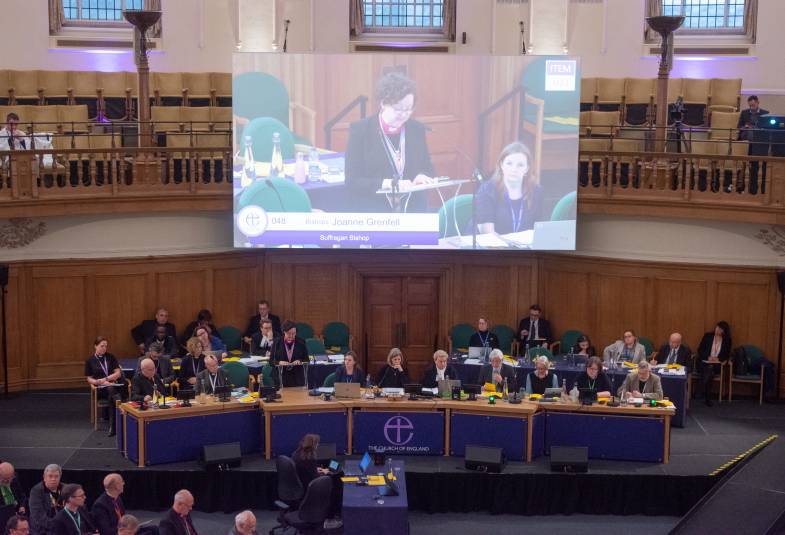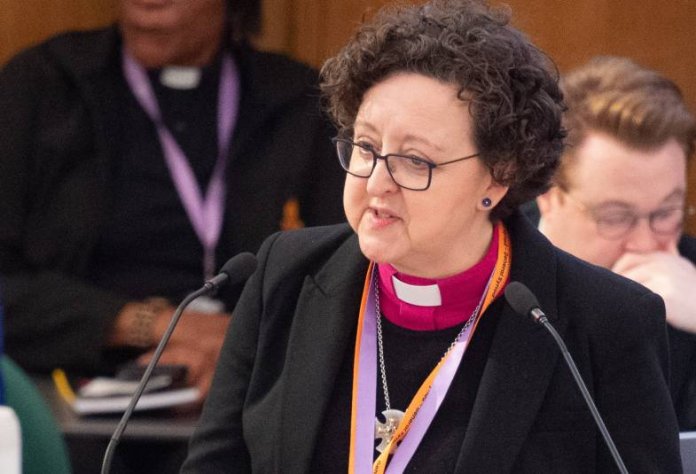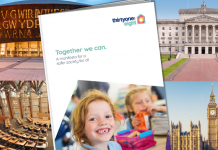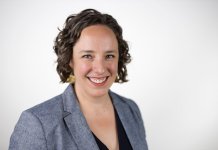The motion follows the publication of independent reports on safeguarding from barrister Sarah Wilkinson and Professor Alexis Jay, former chair of the Independent Inquiry into Child Sexual Abuse, IICSA. Following amendments, Synod also voted to support apologies expressed by the Archbishops to survivors impacted by the matters described in the Wilkinson Report and to apologise to all members of the former Independent Safeguarding Board.
The lead safeguarding bishop Joanne Grenfell, introduced the debate (speech below) which included a video message to Synod members from Professor Jay.
Motion
Following the wide ranging debate Synod voted in favour of the following motion which included two amendments (a number of other amendments were not carried).
- ‘That this Synod thank Sarah Wilkinson and Alexis Jay for their work and request that the process set out in paragraph 12 of GS 2336 for forming a response to, and considering any necessary implementation of, their recommendations be pursued as a matter of priority.
- That this Synod adopt and endorse the apologies expressed by the Archbishops to the Survivors impacted by the matters described within the Wilkinson Report, and specifically acknowledge and apologise for its own collegiate shortcomings within the scrutiny process.”.
- “That this Synod apologise to all members of the former Independent Safeguarding Board for the stress harm and professional embarrassment they have endured which have arisen as a result of the ISB formation, structuring, resourcing, implementation, and management for which they were not responsible.”
The process will involve:
a) An internal team to:
- run deep engagement with Diocesan Safeguarding Advisors/Diocesan Safeguarding Officers and others in dioceses and cathedrals to unpick reactions on different elements and develop detailed proposals;
- develop a survey-style tool that would permit engagement and responses from parish safeguarding officers and other parish volunteers;
- engage with other stakeholders across the church including in the General Synod and hear views.
b) A survivor and victim focus group – to hear the views of victims, survivors and their advocates on the proposals. This draws on the experience of the Seal of the Confessional and Redress projects where a survivor reference group has allowed for deeper engagement with a broad range of survivor perspectives. Best practice will be adopted in how this is done to create a safe space for people to contribute.

Speech from lead safeguarding bishop, Joanne Grenfell, introducing the debate
“To turn a parent’s love into a punishment is one thing. But how dare he turn God’s love into a punishment? Where am I supposed to go from here? I can’t believe that it was right. But when I try to feel that it was wrong I can’t feel anything at all.”
This was a powerful line from a fringe event I attended last night, which I had sponsored along with Bishop Julie Conalty, the deputy lead bishop for survivor engagement. We heard excerpts from Nell Hardy’s play, “I, Lord” about the raw agony of someone who’s been through abuse in the Church and found the Church to be lacking. More than lacking. We failed this person.
It’s an uncomfortable experience, to watch a play like that. But of course, how much worse for the people who live with the effects and the legacy of the utter devastation of abuse.
Synod, you don’t need me to remind you why we’re here.
We have failed – over many years, decades, centuries – to welcome and protect people who needed the Church. We have turned people away from the Gospel of the love and hope we have in Christ and become those of whom Jesus said should have a millstone around our necks.
We know this. We have said it before. We have tried to apologise, to repent, to put things right, and we have not yet done it.
Despite bringing in some of the best safeguarding professionals in the country to serve in our dioceses and our national team, we have not yet gained the confidence of many of the survivors and those who love and support them, and we have not sufficiently put right the wrongs that we have done.
I am grateful to Professor Jay for her report recommending an independent safeguarding model, and to Dr Wilkinson for her review into the events surrounding the termination of contracts for the Independent Safeguarding Board members.
Today we are looking at how we respond together to both. Safeguarding is everyone’s responsibility.
Synod, you will also know from your own dioceses the many improvements that have been made in safeguarding in recent years and the important foundations that have been built. But, as the work of safeguarding has so rapidly expanded, we have not always got our structures or our processes right. Both reports highlight this.
It’s time to take the best of what we have learned, and have started to do, and to develop our understanding and practice. We need to make sure that everyone who walks through the doors of any one of our churches or who comes into contact with any one of our chaplaincies, schools, social action and missional outreach projects, in every diocese, is as safe with us as they can be.
I want to express my appreciation for the work of lay people, clergy, and bishops, and in particular parish safeguarding officers, who are contributing every day to raising awareness, promoting training and good practice, and encouraging a healthy safeguarding culture in every parish. Our safeguarding professionals, in dioceses and nationally, are a vital part of our work.
I quote Professor Jay here on her report’s findings:
“It important to say that the criticisms set out in the report are not a reflection on individual safeguarding professionals, but rather of current structures and processes which need to change.”
So where do we go from here? How can we fully understand the implications of both reports and their recommendations, so we can take responsibility together for addressing the problems which have brought us to this point.
I hear the wisdom of those who say that we should not rush to a decision about new structures – we have lessons to learn here from the setting up of the ISB – but there is also an urgency to address the need for change, perhaps radical change, so that abuse is prevented now, and the wrongs of the past are addressed promptly.
I also hear the wisdom of those who are wary of outsourcing safeguarding, fearing that we might lose the sense of safeguarding needing to be everyone’s business. We need a model of safeguarding that is professional, robust and offers fiercely independent scrutiny, AND which encourages every one of us to take responsibility for the safety of others.
I note Professor Jay’s comment in the film we just saw: “Safeguarding would continue to be delivered locally with safeguarding teams in the dioceses which they know and understand. It is essential that local knowledge and intelligence is maintained.”
The aim of the response group described in your paper is to help us work through the hard choices involved in responding to these strong sets of recommendations to separate the delivery and scrutiny of safeguarding from the structures of the Church. Any recommendations from the response group will then come back to you, Synod, for decision.
This is urgent work. It is not straightforward. But it deserves thorough, balanced, courageous, and open-hearted consideration, to help us together to reach a place where the Church can be both safe and trusted.










